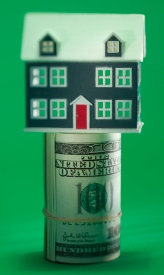Home prices drop in September, reversing months of gains
WASHINGTON – U.S. home prices are
falling again in most major cities after posting small gains in the summer and
spring. The report suggests the troubled housing market remains weak and won't
recover any time soon.
The Standard & Poor's/Case-Shiller index released
Tuesday showed prices dropped in September from August in 17 of 20 cities
tracked. That was the first decline after five straight months where at least
half the cities in the survey showed monthly gains.
A separate index for the July-September quarter shows
prices were mostly unchanged from the previous quarter.
Many Americans are reluctant to buy a home more than two
years after the recession officially ended. High unemployment, weak job growth
and falling home prices have deterred many would-be buyers. Even the lowest
mortgage rates in history haven't been enough to lift sales.
David M. Blitzer, chairman of S&P's index committee,
said that while the steep price declines seen between 2007 and 2009 appear to be
over, home prices are down from the same time last year and do not show signs of
easing.
"Any chance for a sustained recovery will probably need a
stronger economy," Blitzer said.
The largest monthly price declines were in Atlanta, San
Francisco and Tampa. And prices in Atlanta, Las Vegas and Phoenix fell to
their lowest points since the housing crisis began four years ago. Blitzer
called the new lows reached in those three cities a "bit disturbing."
New York, Portland, Ore., and Washington were the only
cities to show monthly price increases in September.
A majority of the cities tracked by the survey posted
modest price increases from April through August, the peak buying months. The
monthly changes are not adjusted for seasonal factors.
Even with the gains, home prices were down in all but two
major cities in September from the same month one year ago.
Sales of previously occupied home sales are on pace to
match last year's dismal figures — the worst in 13 years. Sales of new homes are
shaping up to be the worst since the government began keeping records a half
century ago.
Some people can't qualify for loans or meet higher down
payment requirements. Many with good credit and stable jobs are holding off
because they fear that home prices will keep falling.
"Despite record high affordability of real estate, the
psychology of home buyers is still being weighed down by economic uncertainty,
keeping them on the fence when it comes to buying homes," said Stan
Humphries, chief economist at Zillow.com, which measures home values.
Atlanta has been especially hard hit in the past year.
Prices there dropped nearly 6% in September and have fallen nearly 10% over the
past 12 months.
Since the fall of 2008, one out of every four sales in
Atlanta has been a foreclosure, an auction or a bank sale.
Many homes there were built during the housing boom. The
city has also been confronted by high unemployment. In September, the
unemployment rate was 10.3%— more than a point higher than the national
average.
The Case Shiller index covers half of all U.S. homes. It
measures prices compared with those in January 2000 and creates a three-month
moving average. The September data is the latest available.
Prices are certain to fall again once banks resume millions
of foreclosures that have been delayed because of a yearlong government
investigation into mortgage lending practices.
Home prices had stabilized in coastal cities the past six
months, helped by a rush of spring buyers and investors. But this year, home
prices in many cities, including Cleveland, Detroit, Las Vegas, Phoenix and
Tampa, have reached their lowest points since the housing bust more than four
years ago.
Foreclosures and short sales — when a lender accepts less
for a home than what is owed on a mortgage — are selling at an average discount
of 20%.
Home prices
| Metro area |
Index Sept. 2011
|
Chg. from Aug.
|
Chg. from Sept. 2010
|
| Atlanta |
95.99
|
-5.9%
|
-9.8%
|
| Boston |
154.39
|
-0.8%
|
-1.2%
|
| Charlotte |
112.43
|
-0.9%
|
-2.6%
|
| Chicago |
118.49
|
-0.8%
|
-5.0%
|
| Cleveland |
100.58
|
-1.2%
|
-3.1%
|
| Dallas |
116.54
|
-0.6%
|
-0.8%
|
| Denver |
125.44
|
-0.8%
|
-1.5%
|
| Detroit |
73.17
|
-0.5%
|
3.7%
|
| Las Vegas |
93.8
|
-1.4%
|
-7.3%
|
| L.A. |
168
|
-0.8%
|
-4.2%
|
| Miami |
139.83
|
-0.7%
|
-4.0%
|
| Minneapolis |
114.65
|
-0.9%
|
-7.4%
|
| New York |
169.92
|
0.1%
|
-2.6%
|
| Phoenix |
100.22
|
-0.2%
|
-6.5%
|
| Portland |
136.1
|
0.1%
|
-5.7%
|
| San Diego |
153.72
|
-0.8%
|
-5.4%
|
| San Fran. |
133.22
|
-1.5%
|
-5.9%
|
| Seattle |
135.59
|
-1.1%
|
-6.5%
|
| Tampa |
127.37
|
-1.5%
|
-6.7%
|
| Washington |
188.07
|
1.2%
|
1.0%
|
| The indexes have a base value of 100 in January 2000;
so an index value of 150 translates to a 50% appreciation since then for a
typical home in the market. Source:S&P Indices and Fiserv | |||

No comments:
Post a Comment